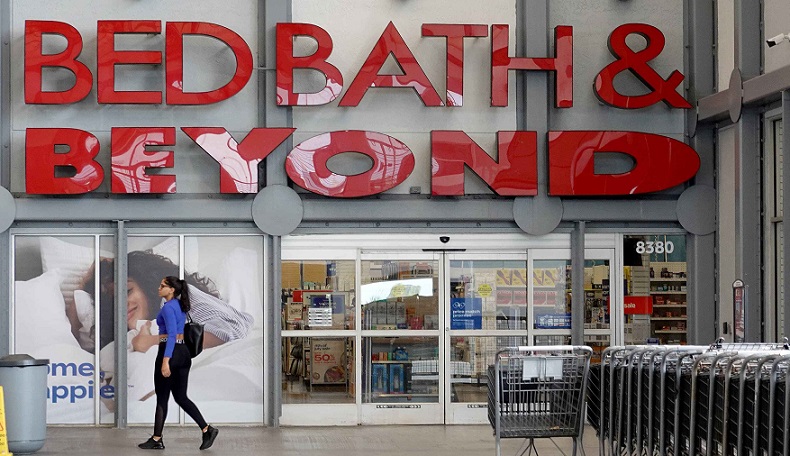
Bed Bath & Beyond is closing 400 stores as it tries to stave off bankruptcy. Bed Bath & Beyond has fallen to the “retail apocalypse” over the past decade, but many chains are still growing.
Growth has been most pronounced in the discount segment of retail as shoppers on tight budgets search for low prices. Other companies are using their stores to ship online orders to customers, which can be more efficient than delivering orders from warehouses.
In fact, despite high inflation and a pullback in retail sales, physical store openings exceeded closings last year for the first time since 2016, according to Coresight Research.
And so far store opening announcements have outpaced store closures this year, the firm says, with Dollar General, Family Dollar, Dollar Tree and Five Below at the top.
Meanwhile, another home goods retailer, Tuesday Morning, will close more than 250 stores this year.
The term “retail apocalypse” refers to the ongoing trend of brick-and-mortar retail stores closing due to declining sales, increased competition from online retailers, and changing consumer preferences. The rise of e-commerce giants like Amazon, as well as the growing popularity of mobile shopping and social media marketing, have disrupted the traditional retail industry, causing many retailers to struggle and, in some cases, go out of business.
Some of the factors contributing to the retail apocalypse include:
Online Shopping: The growth of online shopping has been a major driver of the retail apocalypse. Consumers now have the option to shop online from the comfort of their homes, which has led to a decline in foot traffic at physical stores.
Changing Consumer Preferences: Consumers are increasingly seeking out unique and personalized shopping experiences, which has led to the rise of smaller, niche retailers at the expense of larger, more generic chains.
Oversaturation of Retail Space: There is simply too much retail space in many areas, leading to an oversupply of stores and increased competition among retailers.
Economic Factors: Economic downturns and other financial crises can lead to decreased consumer spending, which can be devastating for retailers.
Increased Competition: Traditional retailers are facing stiff competition from e-commerce companies, as well as from discount retailers and other non-traditional retail players.
The retail apocalypse has had significant impacts on the retail industry and on the broader economy, including job losses, reduced tax revenue, and the closure of once-thriving shopping districts. Retailers have had to adapt to survive, with many investing in their e-commerce capabilities and focusing on creating unique in-store experiences to differentiate themselves from online competitors.